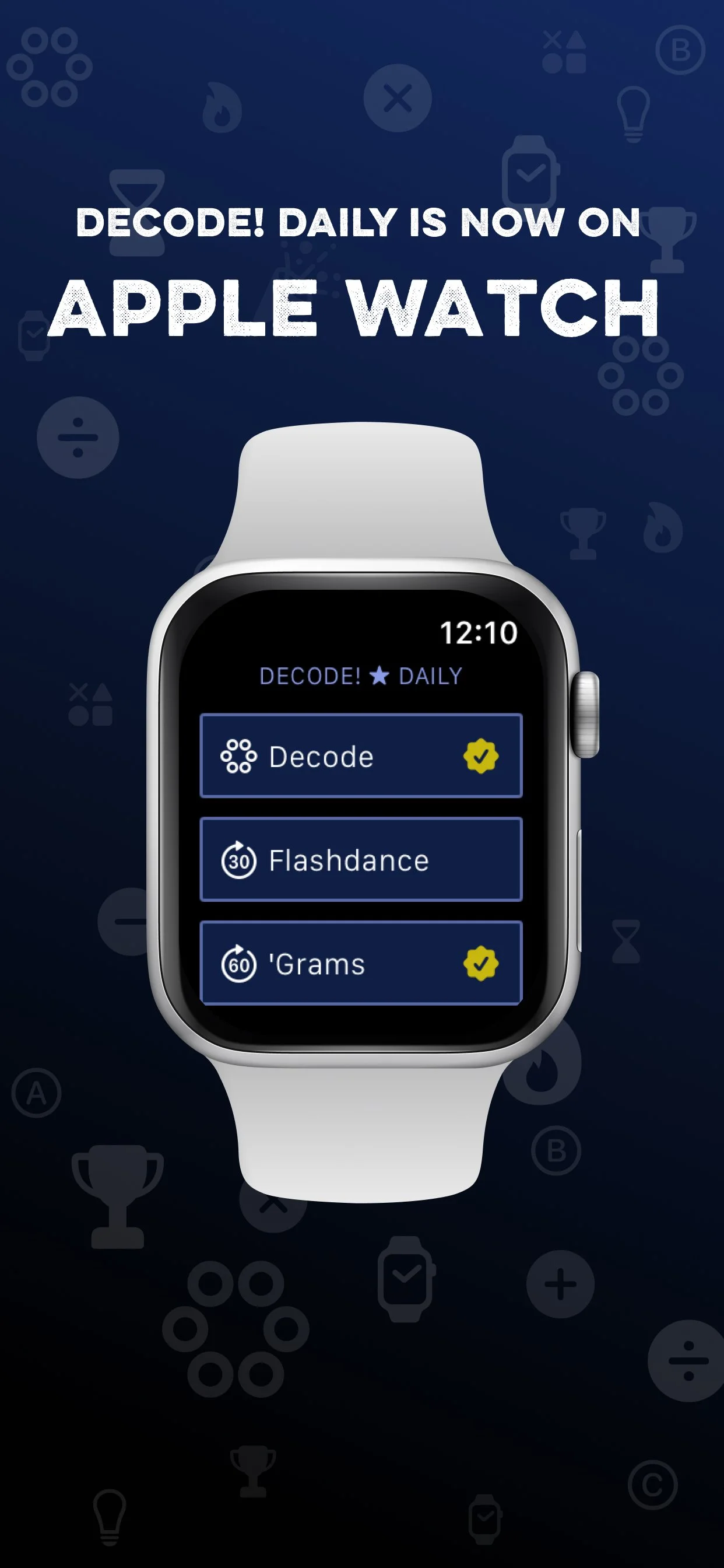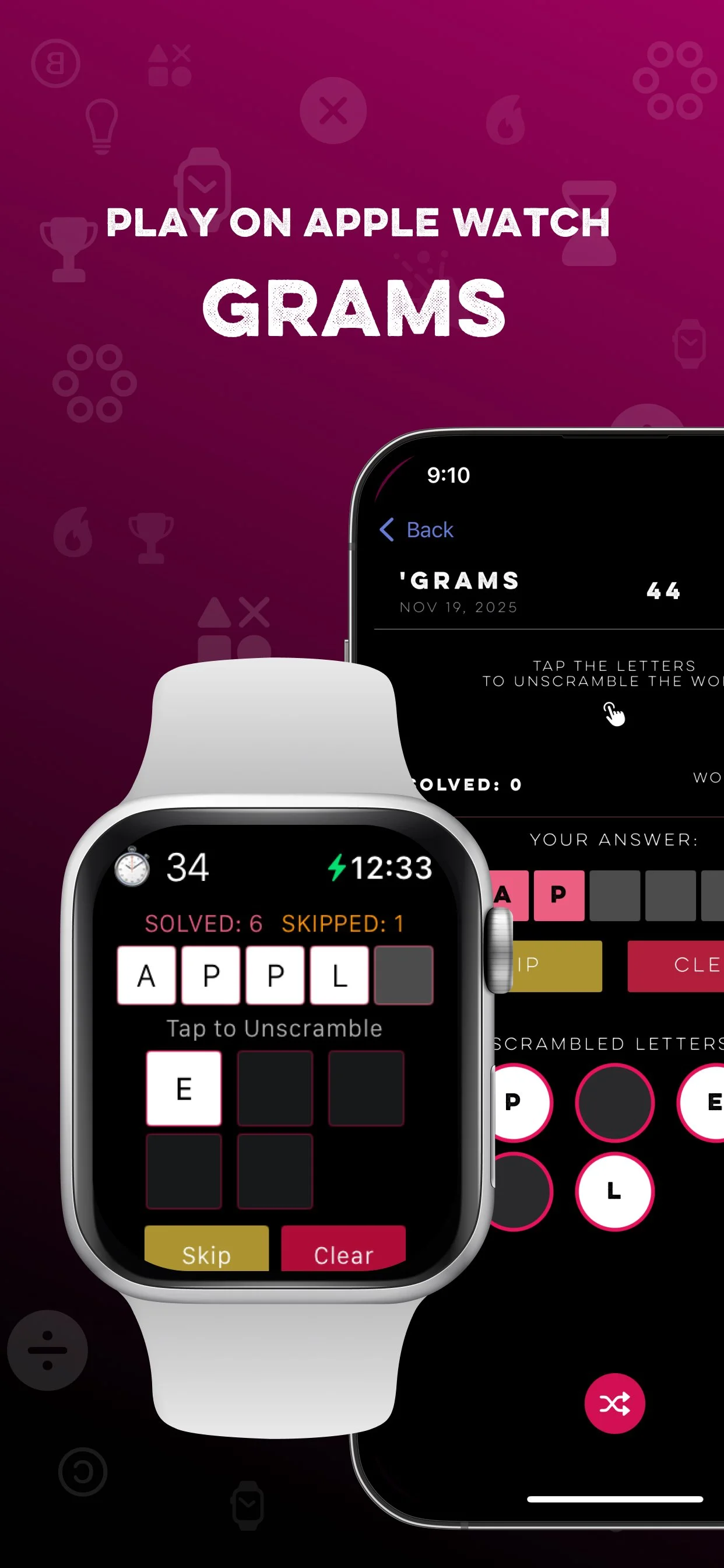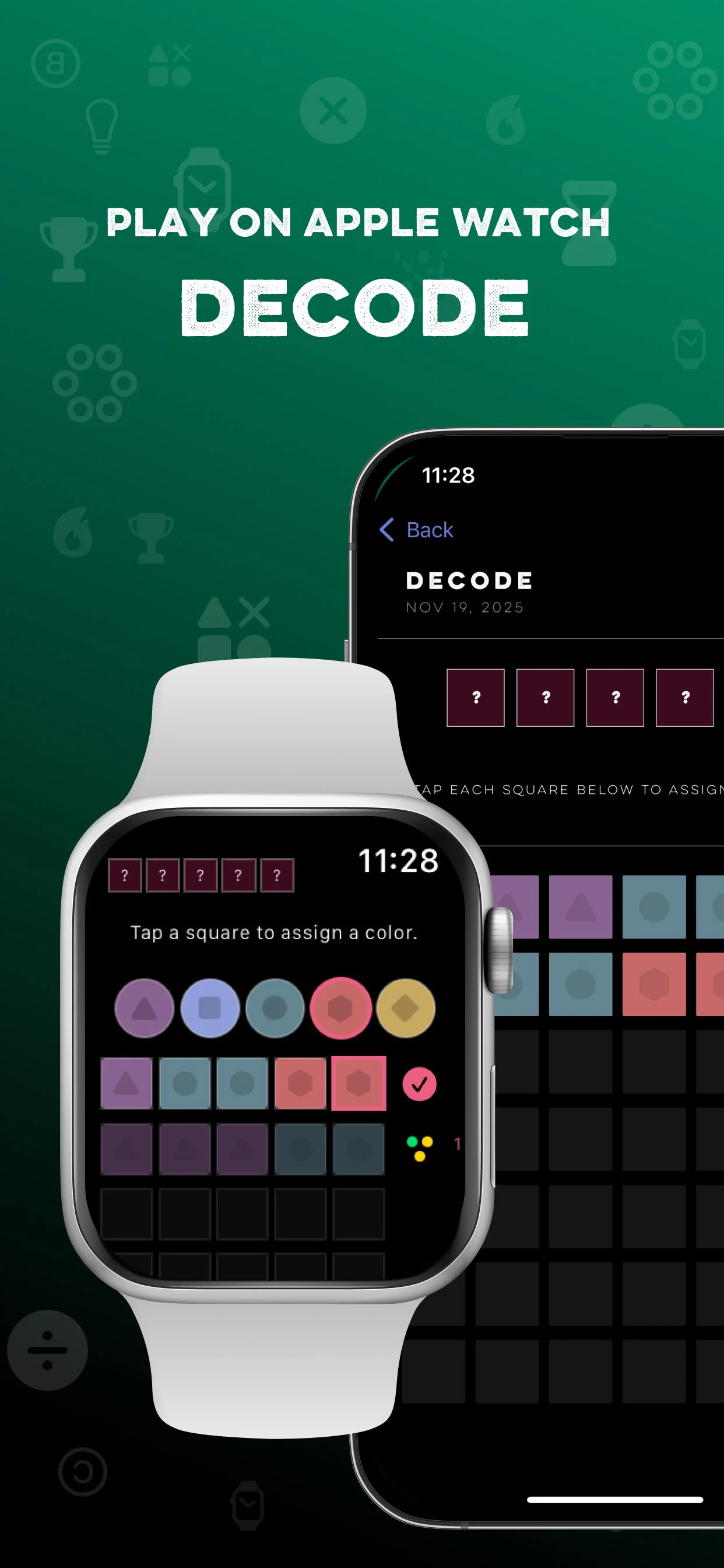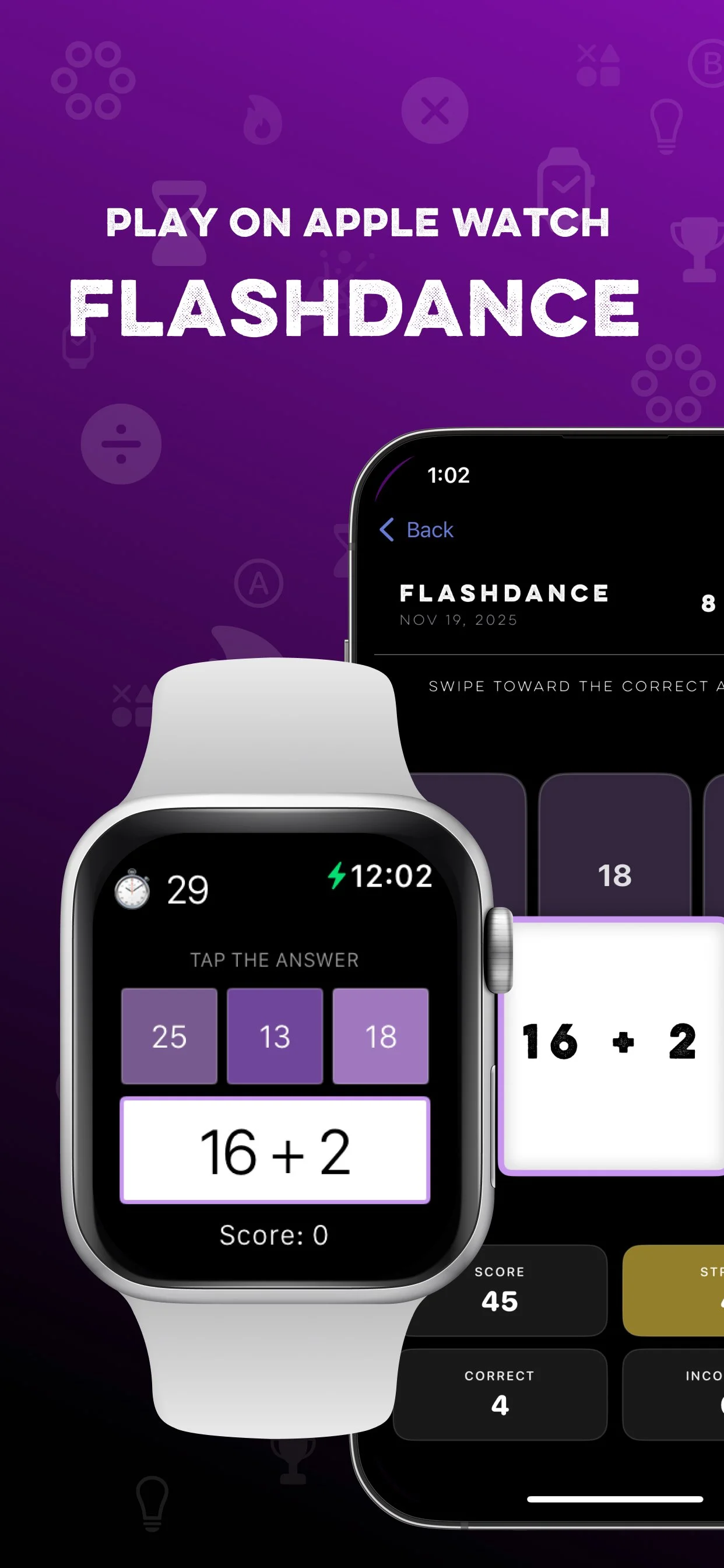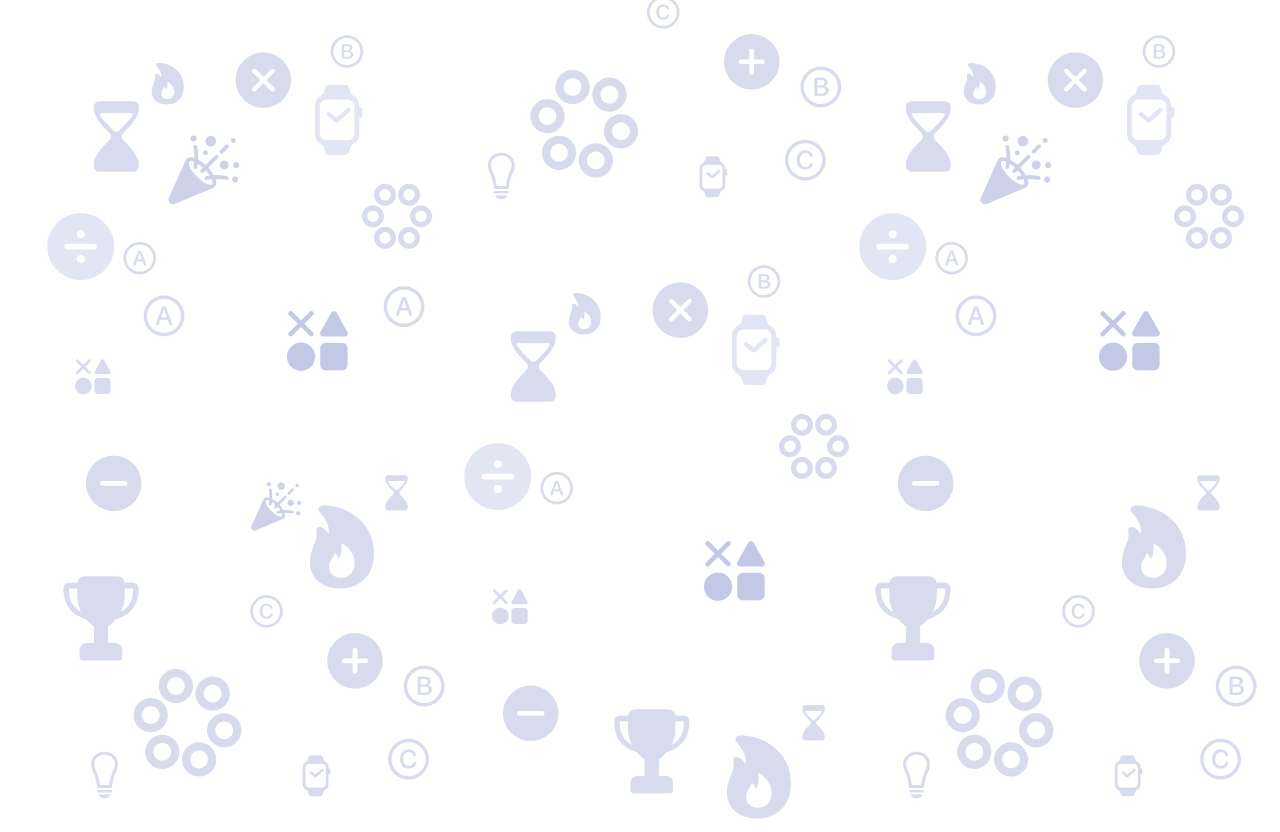
Decode! Daily
Focus on fun, without the interruption of ads.
📣 2.0 is here!
Now on Apple Watch!In the coming update, check out these exciting new features:
On the Go: Play all 3 games from your Apple Watch
Theme Colors: Set the app to one of 4 theme colors
Social Sharing: Text your scores to friends and families
Streaks and Notifications: Play every day
‘Grams Enhancements: More words, bigger buttons
Decode Enhancements: Harder to cheat with game state
High scores Enhancement: ‘Grams and Flashdance show all or just the best per day (customize in Settings)
Three Daily Brain Challenges. One Amazing App!With new puzzles every day, Decode! Daily is the ultimate collection of bite-sized brain games to keep you sharp.
Decode: Crack a secret color code with logic and deduction. Each guess reveals clues to solve the mystery combination before you run out of turns.
Flashdance: Lightning-fast math challenges! Swipe flashcards toward the correct answer in this heart-pumping arithmetic adventure.
'Grams: Race against time to unscramble letters into words. Test your vocabulary and quick thinking as you solve as many anagrams as possible.
Help & SupportNeed Support with the App?
Reach out and we’ll respond within 48 hours.
NOW AVAILABLE!
⇝
get the app
⇝
NOW AVAILABLE! ⇝ get the app ⇝
Sign up for my mailing list to get notified about updates and new releases!

